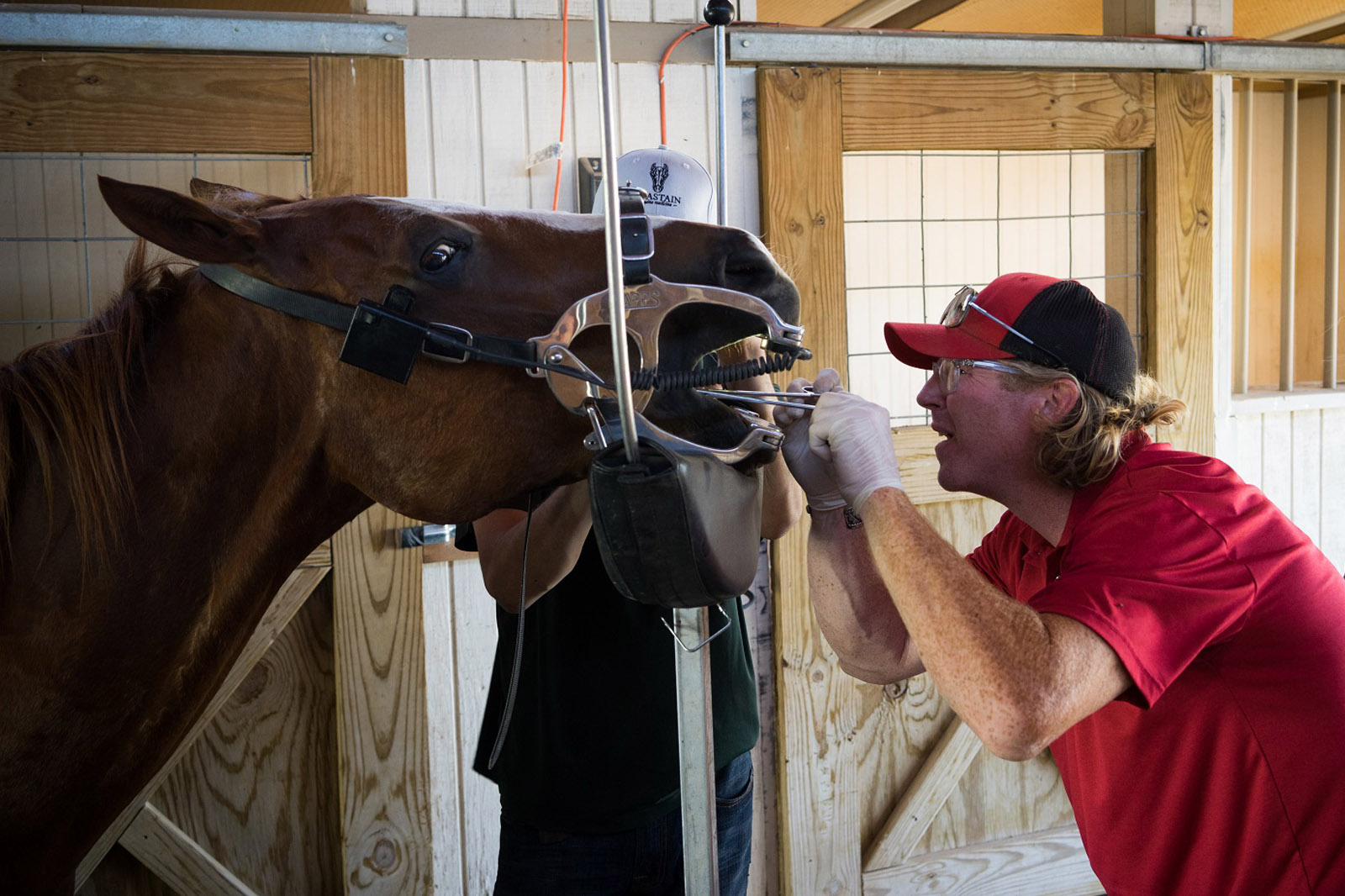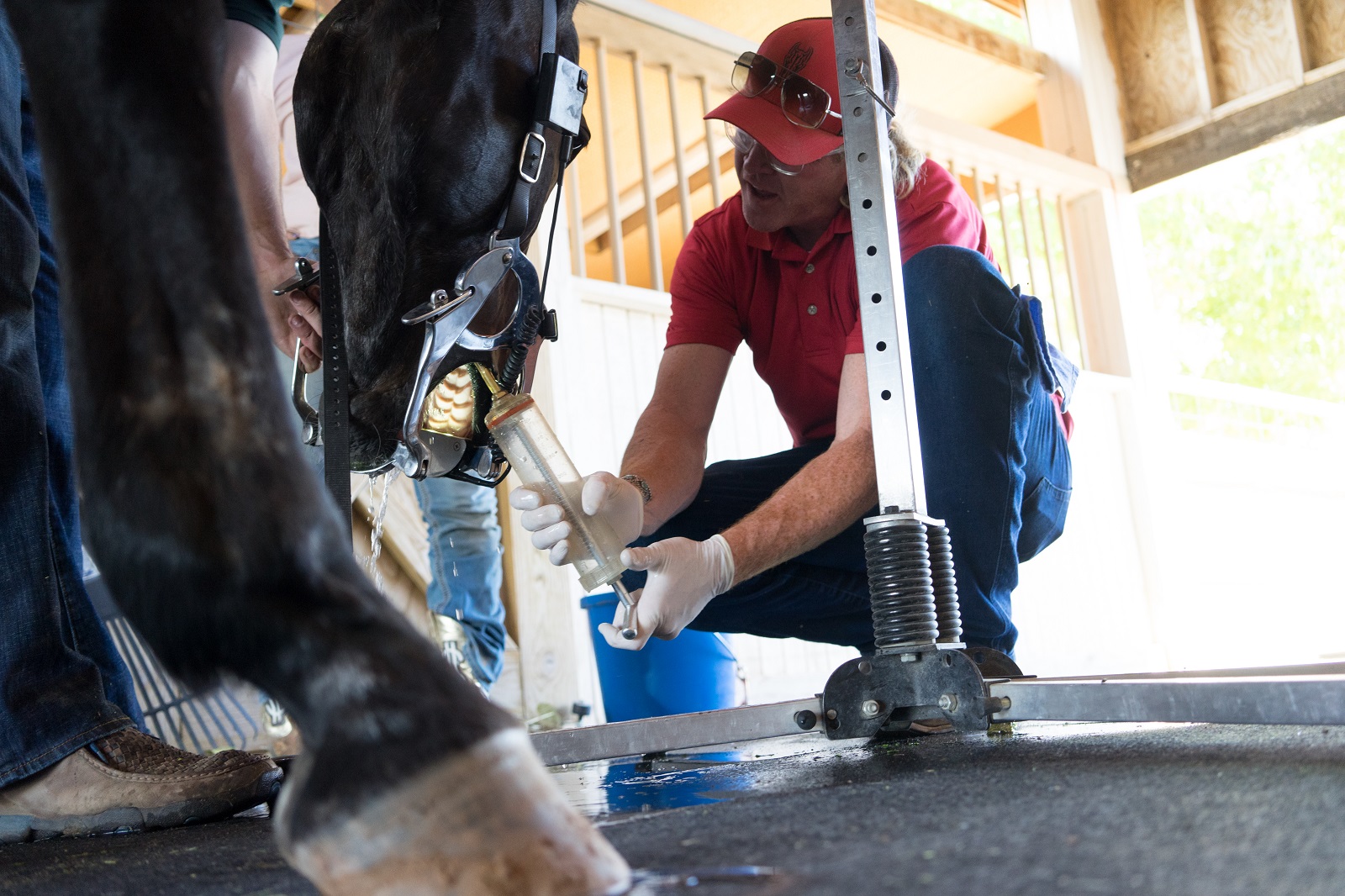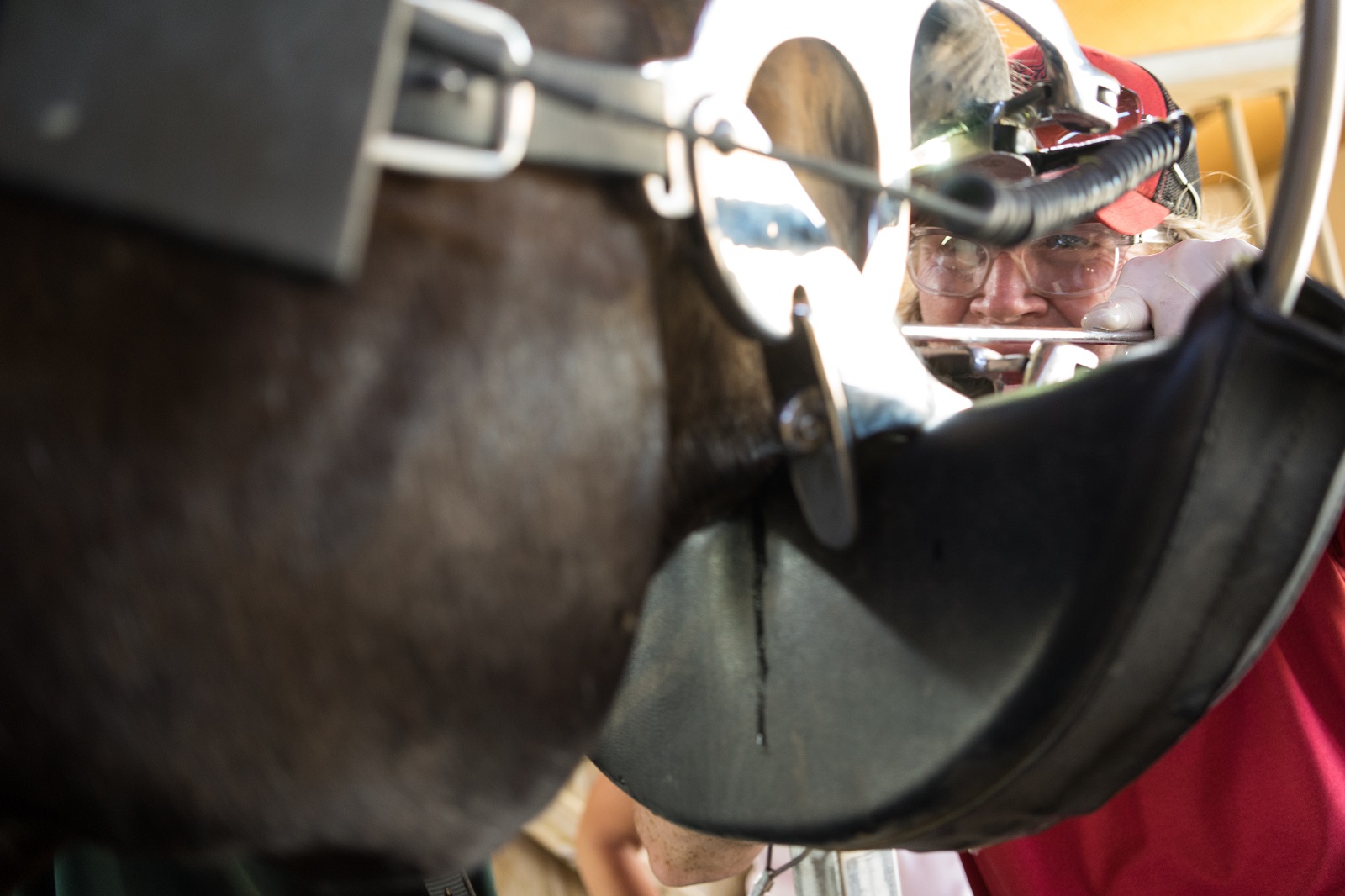
Equine Dentistry in Albuquerque, NM
Dr. Chastain utilizes hand and power tools to accomplish maintenance and preventative dental care for horses. Just like humans, horses are living longer lives these days, largely due to advances in equine medicine. It’s not uncommon for a horse to live well into its 30s. Also like humans, their teeth often wear out well before the end of their lives. In both cases, part of the problem is that their teeth simply weren’t designed to last so long or to accommodate the dietary demands of domesticity, which is largely unavoidable. But the other cause of premature tooth wear and damage is completely preventable – the neglect of regular dental care. It’s very important for the overall health of your horse to have dental checkups and maintenance performed at least twice a year. Chastaine Equine Medicine is available to provide complete equine dentistry services to horse owners and caretakers in Albuquerque, NM.

Why Equine Dentistry Is Important
Horses are herbivores with a diet that is entirely vegetarian, and they have a digestive system intended to process vegetable matter that has been well masticated, or chewed. Their large teeth are designed for mashing and grinding their food into a moist pulp. This constant chewing action wears down the surface structure of the teeth quickly, so unlike human teeth, horses’ teeth keep growing throughout their lives to replace it. When horses grazed on the tough grasses of the free range this worked as intended, but domestication has changed the type of food they eat and altered the way they masticate it. This allows sharp edges to form on the edges of the teeth that can cause painful ulcers to develop on the cheeks and tongue if they are not filed and evened out, or floated, by an equine vet a couple of times a year. This can also affect digestion, potentially causing other serious health problems. Regular equine dentistry is important and can be performed during the course of a regular physical exam.
Symptoms Of Oral Problems
You should know the warning signs of dental problems in your horse and contact your equine vet right away if they occur.
- Abnormal chewing
- Dropping feed out of the mouth
- Choking or gagging
- Refusal to eat
- Excessive salivation and nasal discharge
- Unusually bad breath
- Weight loss
- Refusal to take a bite

If your horse seems to be reluctant to eat or show any signs of pain while eating, this may be a sign that his or her teeth have developed sharp points or hooks that are poking the roof of the mouth or insides of the cheeks. The occlusal (grinding) surfaces that do the grinding will usually be worn down normally, but most horses do not have completely even grinding/bite patterns, so these hooks and points can develop and need to be filed down (floated) regularly.
If your horse seems to drop a lot of food while eating, the molars may not be meeting up properly, allowing food to escape. If your horse chokes or gags on food, this can also be a sign that the teeth are not grinding the food down enough and that there is a problem that requires horse dentistry. A combination of bad breath and difficulty eating can signal that your horse may be suffering from horse periodontal disease and/or tooth decay.
During a dental checkup, Dr. Chastain may need to sedate your horse and use a speculum to keep its mouth open to do the exam and floating procedure. It’s a safe and routine procedure that will help to keep your horse in good health. A speculum will be used to keep the horse’s mouth open so the mouth can be rinsed, teeth, gums and tongue can be examined, and all of the mouth’s tissues for inflammation, odors, lesions, etc.
If you’re in need of equine dentistry in Albuquerque, NM, contact Chastain Equine Medicine to schedule an appointment.



